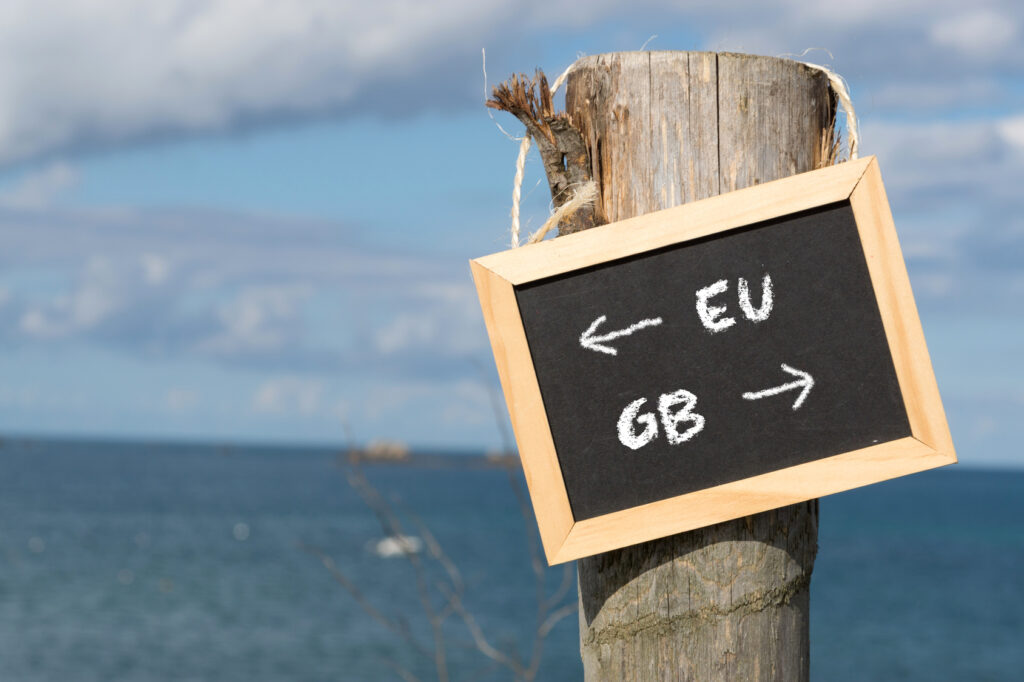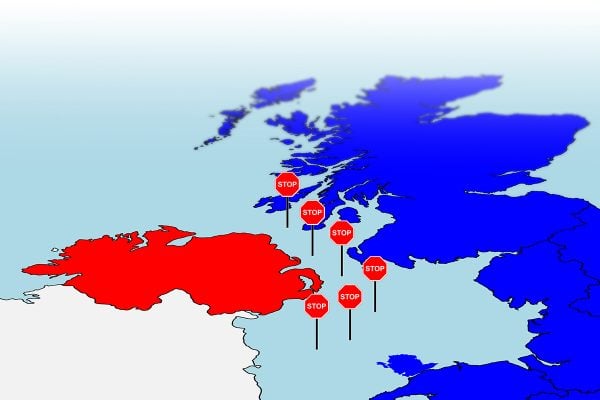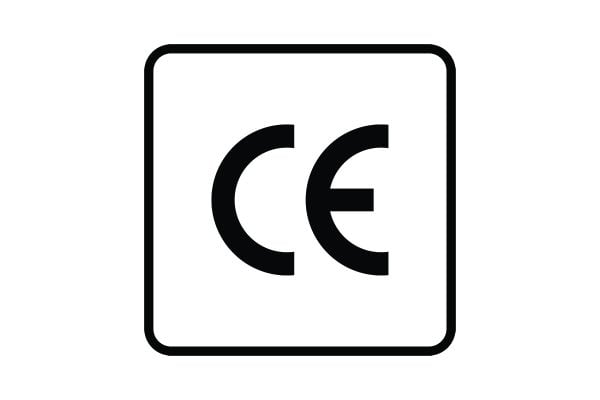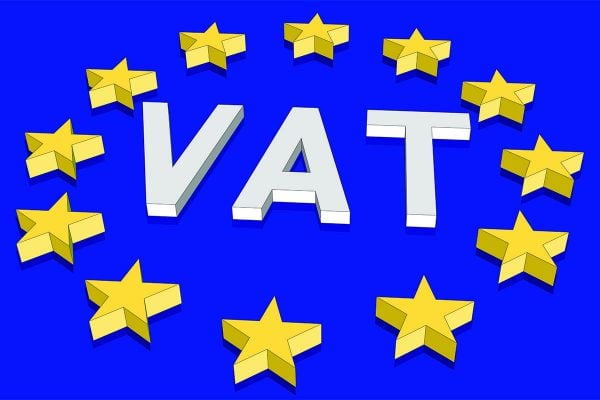The Referendum is over, the country as a whole voted to leave the EU, so what does this potentially mean for marketplace sellers? We don’t know all the answers, or even all the questions, but here are some things you’ll be thinking about over the next couple of years.
Don’t forget though, today the referendum has changed nothing yet and it’s business as normal. It’s simply an expression of the collective nations wishes which the Government is expected to take into account when deciding what to do next (but isn’t actually binding).
Fees and Taxes
Marketplace fees are still generally paid in Sterling unless you’ve registered on another country site. What is likely to change is the VAT. We may see eBay and Amazon fees charged with 20% UK VAT instead of the current 15% VAT. This might look like an instant 5% discount for VAT registered sellers, but in the past fee increases have soon swallowed up any potential VAT savings.
A bigger issue may be small businesses having to register for VAT in EU countries, but for larger sellers that’s already the case and whilst definitely unwelcome and onerous there will always be software solutions to take care of this.
FBA
Fulfilment by Amazon is going to get more complex. Currently you can hold stock in a UK Amazon warehouse and fulfil sales through other Amazon EU country sites from you UK stock. That’s not likely to change and makes the shipping into the EU Amazon’s problem rather than yours.
Some sellers have chosen to hold their inventory in Amazon’s warehouses to serve customers on the continent and qualify for Amazon Prime service to consumers in Germany or France. If a UK seller outside the EU is holding stock in EU warehouses that could have some complicated tax implications over and above any current requirements to register for VAT in the country your stock is held in.
PayPal and Payments
PayPal is your friend, they’re used to moving money around the world and, apart from regulatory issues which (with the recent exception of Turkey) they have proved more than capable of handling, there’s no reason it shouldn’t be business as normal.
Other companies such as Currencies Direct, OFX and WorldFirst could prove to be even more attractive in the future. If the cost of repatriating funds from sales rises and exchange rates go up, then a business which can save you fees or offer more attractive exchange rates is going to be welcomed.
Couriers
Couriers, if they voiced an opinion, have generally been in favour of the UK remaining within the EU. Any customs barriers automatically add in paperwork, cost and possible shipping delays. Potentially shipping costs could increase and import/export duties applied along with the tedious filling out of customs declarations.
This all depends on what form of trade agreement (if any) is bartered for with the EU and we won’t know that for months if not years.
eBay Global Shipping Programme
Smaller sellers could be forgiven for pulling up the drawbridge and deciding to sell to the UK only if customs and tax administration becomes too complicated. There’s no need to do this however, you can simply make use of services such as eBay’s Global Shipping Programme and make it eBay’s problem to do the exporting.
As soon as your product arrives in their Midlands processing centre, you’re responsibility is over and it’s eBay’s problem to ship the item, handle any customs import documents and to handle any tax or duty that needs to be paid.
Cross Border Trade around the world
If you’ve been selling on marketplaces you’ve probably already made sales to countries around the world with which we have no trade agreements at all. Lack of a Trade Agreement doesn’t mean you can’t buy and sell, it simply means that you may be disadvantaged compared to a local seller in the destination country by import tariffs.
It’s worth remembering that the Internet has enabled millions of people running small businesses around the world to become importers and exporters. Brexit isn’t going to change that although it may make it more difficult or costly. It’s unlikely to be as easy as the Leave brigade promised in the run up to the referendum, but perhaps not as burdonsome as the Remain camp would have had you think.









39 Responses
~
I think that the 2 biggest factors on all business will be the effect (if any!) on both the value of sterling vs other major currencies and UK disposable incomes.
Very much wait and see.
Your vat information is the wrong way around. At present, any seller exceeding the vat level in an EU country needs to register there. Outside the EU, the registration would only be necessary if the goods were stored and dispatched from that country, as posting inwards would mean the buyer potentially had to pay import vat.
One of the big benefits of brexit in fact is that sellers will be likely able to sell more into Europe without registration, and would be able to zero rate and therefore offer a lower price, completing more directly with far east and USA sellers.
For clarification, compare to HK sellers selling now into the UK. They must register for vat if they store and ship in the UK, but if they post from HK *to* the UK, they need not.
There is more to the Planet than Europe?
17 packages exported this morning
2 x Germany 1x Italy , the others world wide
including USA , Australia, Isreal, South Africa, South Korea, Thailand,
~
Less and less of my stuff has gone to EU Europe in the recent past.
More and more has gone to non-EU Europe though, the likes of Iceland, Norway and Switzerland. Go figure.
its not all bad
the gold rings on your fingers are probably worth a fiver more now
lol
~
Some facts:
Gold is worth less now than 5 years ago, even allowing for the £/$ change.
The £ is worth more against the Euro than 5 years ago.
In 1985 the £ was briefly worth less than $1.05.
……
And we are all still here.
Morning all,
I work on the World First Ecommerce desk and wanted to give you an insight into the GBP:USD rate as this clearly affects you when importing your goods to sell online. This morning we have hit a 10 year low in GBP:USD with the currency pair currently trading at 1.3250 as I type. Unfortunately the leading FX Banks are forecasting that Sterling will continue to fall as uncertainty looms over the UK economy. On the plus side as Sterling does decrease in value, this will mean that your sales will become more profitable in the US and Eurozone. Though I do appreciate that there will be many other things to consider as highlighted in this article.
If you wish to get a further insight into Sterling’s movements in the future, please go to: https://www.worldfirst.com/uk/blog/. On this page you will be able to access relevant insights from Jeremy Cook who is regularly featured on the BBC, Bloomberg TV and in leading newspapers such as the Telegraph and Guardian.
Finally, World First does give you the opportunity to protect your business from currency volatility by enabling you to fix a rate for up to 3 years in advance. There are obvious pros and cons to this, however with the right strategy it is possible to get a profitable plan in place for your business. If you’d wish to look into this further, please give me a call on +44 20 7801 2394.
I wish you all the best with your future trade.
Mark Bond
some of my suppliers are based in HONG KONG , can i send payment in hong kong dollars , would this be better for me than sending payment in USD ?
i have a payment of $7000 to send and i am holding it off a for a while
So many of our sales go into the EU now it is very concerning for us. Short term maybe not a lot change, there has been a bit of a drop in EU sales already this weekend. I want a much bigger market than the UK which I think supply is outstripping demand. Our whole business has done very well out the single market. I hope they do a deal and soon.
Couriers may well start to be an issue sooner than you think. My RMG shares were 541 last week now down about 475.
I would be more concerned about the wider economy and people’s disposable incomes.
As a small seller below the VAT thresholds, within the EU, who often sells to the UK, only the buyer would be liable for import duties. No idea what the threshold might be, but for sellers of low valued items, it may make no difference. I suspect it will cost more to send to the UK, a customs declaration will likely be required and as consequence it may take longer for people to receive their items.
UK sellers, who sell to Europe, might also experience hikes in postage costs and more delays too.
I am relatively new seller on the Amazon marketplace so I may not be right. Feel free to correct me.
I am not VAT registered currently and as result of not having sent Amazon my VAT number they still charge me VAT on the fees. Above you mention Amazon currently charges 15% VAT. Well… according to my monthly fees invoice from Amazon I am charged 20%.
Also confirmed by details on this page:
https://www.amazon.co.uk/gp/help/customer/display.html?nodeId=3517791#qualify
Anyone able to clarify?
I am relatively new seller on the Amazon marketplace so I may not be right. Feel free to correct me.
I am not VAT registered currently and as result of not having sent Amazon my VAT number they still charge me VAT on the fees. Above you mention Amazon currently charges 15% VAT. Well… according to my monthly fees invoice from Amazon I am charged 20%.
Also confirmed by details on this page:
https://www.amazon.co.uk/gp/help/customer/display.html?nodeId=3517791#qualify
Once I register, according to Amazon I will no longer be charged VAT on the fees.
Anyone able to clarify?
The best thing to stop you getting affected by currency fluctuations is to speak to your bank about getting an account in the Eurozone and the USA.
We have a bank account in Spain, so our Euros from Amazon and our website sales go into that. We also have a bank account in the USA so our USD from Amazon.com go into that. We then try and pay our suppliers directly from our US bank account. When we don’t have enough in that we can use either GBP or our EUROS account.
If there is a bit of a crisis going on in the Eurozone you can use GBP, or if there is a crisis going on in the UK (as there is now) we can use EUROS.
The problem with these currency companies saying oh we will open you a bank account in the USA, eurozone etc is that it’s not a proper bank account. You can pay in, but you can’t pay out, except to trransfer it back to GBP. False advertising really.
Ways to avoid some problems long term is to ‘encourage’ more UK manufacturing, more employment (forced if some cases) of UK citizens who would then have money to spend in the UK rather than sending it ‘home’ to a foreign country, and adding import duties to stuff from China etc, where they use slave labour.
Not going to be popular with everyone, but remember how most of our textiles were made in Leicester or parts of the Empire, plastic goods were made in Hong Kong and toys are still being sold/used today as collectibles.
I don’t think I’m trying to live in the past, and I wonder how much of our politicians’ reluctance to solve these problems is down to their own vested interests with regard to paid directorships, consultancies etc ?
james – in no way do I condone slavery, the ‘forced labour’ you refer to was about forcing able-bodied Brits who sit on benefits, to actually do a paid job and thus save on the benefit payments they receive.
I’ve never understood the ‘logic’ in foreign workers paying their taxes and thus helping to pay the benefits of lazy idle Brits, which is trotted out quite often in these sorts of debates. I believe it would be better to ensure everyone has a job or else gets no benefits health care etc.
Why should those who go to work in fact support those who cannot be bothered ?
If someone is genuinely unable to work then that’s a different matter, but even then I believe many of them would love to feel useful and be able to do some sort of work just like everyone else, no matter how trivial the task, then let’s treat those with ‘problems’ (not self-inflicted drugs or alcohol ones) as ordinary valuable citizens.
Hi
If the UK adopts the the same agreement as Switzerland, then this could also have implications.
The EU is by far our largest route with daily vehicles to Amsterdam, Brussels and Paris and a charter flight to Kassel in Germany.
Many MP or leave campaigners tend to think that Switzerland is simple to export too. If you are not a registered exporter and you do not show the EFTA declaration on your shipping invoices, then the consignee will have to pay duty and VAT. For consignments over 6000 euro’s you also need to apply for an EUR1 form which needs to be stamped at the local Chamber of Commerce.
My concern is that there would be customs controls in place. So imagine the queues at our ferry ports, rail terminals and the administration required for air movements.
If we send a vehicle to Switzerland, we’re on the border for 30 minutes arrange the clearance. Would this be the case for every vehicle entering or leaving the UK.
If so, our vehicles to Amsterdam, Brussels and Paris would not achieve an overnight transit and I’m sure the flight to Kassels would have to be scapped.
Transport costs would also increase by between 30% to 40% based on moving more freight by air than road to meet delivery deadlines.
At the moment, there are so many unknowns that we do not know the impact the above will have.
What I do know is that the market has gone quieter over the past few days.
Martin
Sam O’levski
I am an immigrant in Britain, i came to this country to work then go back home some day.
I do not wish to settle in this country, i wish no immigrant would settle.
I employ people in this country: British and non British.
When i earn my hard earned money, I pay council tax, national insurance, income tax, pay other peoples wages, VAT and whatever tax there is.
I pay into a pension i would not use.
I buy goods and services in this country I also SEND MONEY HOME.
Whats wrong with that?
I don’t tell you how to spend your money so what gives you the right to tell me how I should spend mine?
People choose to spend and save their money differently, so why should that be your problem?
A bit of history for you, your ancestors: the Colonial British did not spend their money in the colonised lands, they sent it to Britain(their homeland).
Britons in Spain, US, Europe etc who are there temporarily save their money back home or for use when they return back home.
No immigrant who intends to go back to their homeland will spend their entire income in the temporary country so get over it, it has never happened before and it wont happen, its just common sense.
What has happened to Britain and most western countries is the negative effects of globalisation, those manufacturing jobs (Textiles, Plastics etc) may come back but how competitive will they be?
If you were a factory owner would you pay £8 per hour to an employee as opposed to £2 elsewhere?
As a consumer, would you rather buy an item for £10 than £4 because it was made in Britain?
If your answer to both questions above is yes then manufacturing in this country has a future, otherwise governments should focus on re-skilling people who have lost globalized job and people should educate themselves to how to deal with a globalized world.